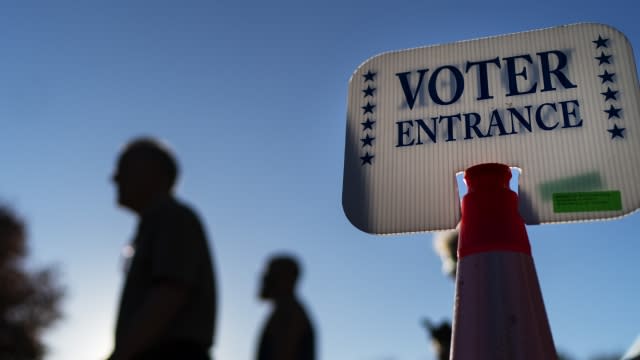Michigan could be next state to join national popular vote compact

Every four years, the presidential election comes down to a handful of critical swing states, thanks to the Electoral College. But for nearly two decades, an effort has been slowly gaining steam that would guarantee the candidate who wins the national popular vote ends up in the White House.
For more than 15 years, Pat Rosenstiel has been trying to change the way we elect our presidents.
"I can't think of a single redeeming quality to the current system. Every voter in every state should be politically relevant in every presidential election, and national popular vote is the only way to do that because it guarantees the presidency to the candidate who wins the most popular votes in all 50 states," said Rosenstiel.
He's talking about the National Popular Vote Interstate Compact. And here's how it would work.
The constitution gives states the power to decide how to award their electoral votes. Under this proposal, states in the compact agree to give their electoral votes to whoever wins the national popular vote, regardless of how that state's residents vote. For the compact to take effect, states representing at least 270 combined electoral votes — the minimum needed to win the presidency — have to sign on.
"When states with 65 more electoral votes say they want to have a national popular vote for president, we're going to have one," said Rosenstiel.
Maryland was the first state to join in 2007. Fast forward to 2023 when Minnesota became the 17th state to join, pushing the total electoral vote count to 205. In Michigan, state Rep. Carrie Rheingans is working to try to make her state the 18th.
"I had to win the most popular votes in my district in order to win my seat. And I think the president should have to do the same thing," said Rheingans.
SEE MORE: The controversial history of third-party candidates
She says her bill has wide bipartisan support. The issue has been introduced many times before in Michigan, but she thinks the momentum this time around could get it across the finish line.
"It's not just party control. It's really the groundswell that we've been having for democracy. Labor groups and environmental groups have been adding a focus of democracy, voting, voting rights, voting accessibility, as part of their platforms for the work that they're doing" explained Rheingans.
Five times in the history of the U.S., the winner of the Electoral College lost the national popular vote. Despite that, opponents of the interstate compact say there's no need to fix something that isn't broken. They argue the current system preserves the influence of smaller states.
"Candidates would be able to ignore largely more rural, less populated states. They would concentrate on the big cities that also have the densest media market. So this would actually be worse for states like Montana," said Hans von Spakovsky, a senior fellow at The Heritage Foundation.
But many states are already overlooked. In the final weeks before the 2020 election, 96% of presidential campaign events were held in just 12 states. And popular vote advocates say their proposal will allow voters in Wisconsin or Florida to hold the same value as voters in Wyoming or Oklahoma.
Rheingans believes that the principle of "one person, one vote" is of top importance.
"I'm not trying to have us get rid of the Electoral College right now, that's not on my radar at the moment. For this, what we're trying to do is use the power of the Electoral College, and make sure it's aligned with the national will of the people," said Rheingans.
When the compact reaches 270 votes, Rosenstiel expects legal challenges to be filed, including one that would argue the compact needs congressional approval to go into effect. But he's confident the National Popular Vote compact is legal and constitution, and he believes it will be in effect by 2028.






